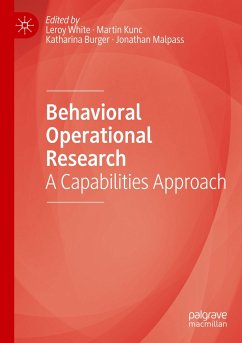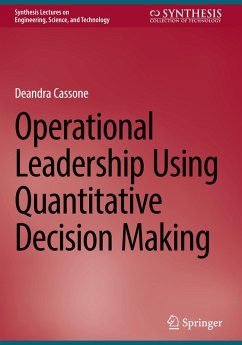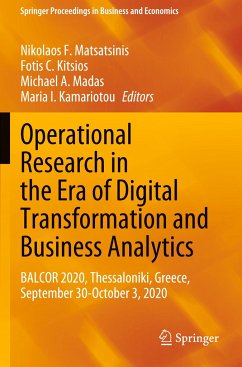
Behavioral Operational Research
A Capabilities Approach
Herausgegeben: White, Leroy; Kunc, Martin; Burger, Katharina; Malpass, Jonathan

PAYBACK Punkte
68 °P sammeln!
This edited collection addresses the question of which capabilities and competencies enable Behavioral Operational Research to provide sustained improvement to decision processes. The aim is to show how a focus on capability and competency will not only meet short-term requirements for problem solving and decision support, but also build a solid foundation for the future. The contributors present recent advances in Behavioral OR, with a focus on the ways in which users of models deal with incomplete and imprecise information, subjective boundaries and uncertainty. These chapters are structured...
This edited collection addresses the question of which capabilities and competencies enable Behavioral Operational Research to provide sustained improvement to decision processes. The aim is to show how a focus on capability and competency will not only meet short-term requirements for problem solving and decision support, but also build a solid foundation for the future. The contributors present recent advances in Behavioral OR, with a focus on the ways in which users of models deal with incomplete and imprecise information, subjective boundaries and uncertainty. These chapters are structured around three key dimensions of BOR: capabilities, cognition and aspects of practice.














